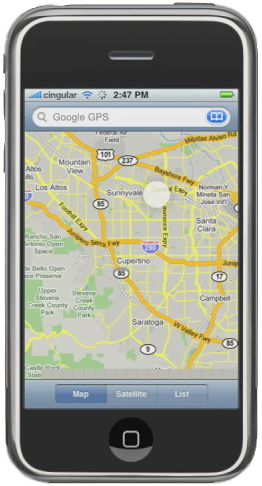Home | Solutions Blog | Tracking
Posts tagged "Tracking"
Oh what your mobile phone carrier knows and tracks about you! A one-page document from the Justice Department‘s cybercrime division shows how cell phone companies record and retain your call and surfing activity (calls, text messages, web surfing and approximate location). Here’s a summary of how each company retains your information (full details in the image below):
- Verizon Wireless – rolling one-year records of cell tower usage & what phone accessed what web site
- AT&T / Cingular – ongoing records of cell tower usage since July of 2008
- T-Mobile USA – doesn’t keep any data on Web browsing activity
- Sprint Nextel’s Virgin Mobile – 3 month record of text content
- Other than Virgin Mobile and Verizon, none of the carriers keep texts but they keep records of who visited a particular web site.
- Verizon keeps some information for up to a year that can be used to ascertain if a particular phone visited a particular Web site
Posted in Fraud Detection & Prevention, Identity Theft Prevention by Identity Theft Speaker John Sileo.
Tags: "Identity Theft, AT&T, Cell, Identity Expert, John Sileo, Justice Department, Mobile, Privacy, Privacy Expert, Security, Security Expert, Sprint, Texts, Tmobile, Tracking, Verizon, Wireless
 You already know that every word you type on your browser is being tracked and used to profile and deliver highly-relevant advertisements to you (Big Brother Lives in Your Browser). And you know that most websites install “cookies” onto your computer in order to store relevant information about you (account numbers) that make surfing more convenient, and to gather information that allows advertisers to know more about you. You probably even know how to delete them.
You already know that every word you type on your browser is being tracked and used to profile and deliver highly-relevant advertisements to you (Big Brother Lives in Your Browser). And you know that most websites install “cookies” onto your computer in order to store relevant information about you (account numbers) that make surfing more convenient, and to gather information that allows advertisers to know more about you. You probably even know how to delete them.
But new research has shown that deleting cookies doesn’t always help. A new breed of cookies, called supercookies, can reconstruct all of your profile history even after the cookie has been deleted. MSN.com and Hulu.com just got caught using supercookies to track your surfing habits in stealth mode (you have no way of knowing that it’s happening, and you can’t do anything about it). The Wall Street Journal had this to say about supercookies and history stealing:
Posted in Cyber Data Security, Identity Theft Prevention, Online Privacy by Identity Theft Speaker John Sileo.
Tags: Browser, Cookies, history stealing, Privacy, Sileo, super cookies, supercookies, Tracking, Wall Street Journal, WSJ
Remember the iconic 1984 Super Bowl ad with Apple shattering Big Brother? How times have changed! Now they are Big Brother.
According to recent Wall Street Journal findings, Apple Inc.’s iPhones and Google Inc.’s Android smartphones regularly transmit your locations back to Apple and Google, respectively. This new information only intensifies the privacy concerns that many people already have regarding smartphones. Essentially, they know where you are anytime your phone is on, and can sell that to advertisers in your area (or will be selling it soon enough).
The actual answer here is for the public to put enough pressure on Apple and Google that they stop the practice of tracking our location-based data and no longer collect, store or transmit it in any way without our consent.
Posted in Cyber Data Security, Fraud Detection & Prevention, Identity Theft Prevention by Identity Theft Speaker John Sileo.
Tags: Android, Apple, Big Brother, data collection, Data Mining, data security, Droid, Geo-location, Google, GPS, iPhone, John Sileo, Location Based, Mobile Phones, Mobile Security, Tracking, User Data
Microsoft has announced that the latest version of Internet Explorer will offer users a new anti-tracking privacy feature. This will help prevent marketing and advertising companies from watching where you surf and what you do online without your consent. Users will be able to set their preferences to prohibit companies from obtaining sensitive tracking information. This is a first step in the right direction – browsers should step up as the first line of defense against unwanted information collection.
This comes at a time where advertisers want to reintroduce the use of deep packet inspection in order to more closely watch and market to consumers online. This method reads and analyzes raw packets of your personal data as they travel across the Internet – for obvious reasons deep packet inspection has been the subject of much controversy. Internet users are becoming more aware that what they do online is not private and are beginning to ask for tools to protect their browsers from spying.
Posted in Cyber Data Security, Identity Theft Prevention by Identity Theft Speaker John Sileo.
Tags: Browser, Deep Packet Inspection, identity theft expert, Identity Theft Prevention, Internet Explorer, Internet Explorer 9, John Sileo, Microsoft Internet Explorer, Spying, Tracking, Tracking Protection Lists, Web Browser Tracking
The world is spying on you, and you don’t really even know it. A recent investigation by the Wall Street Journal concludes that spying on consumers in order to sell their data is one of the fastest-growing internet businesses. Here is a summary of the most striking findings:
“The Study found that the nation’s 50 top websites on average installed 64 pieces of tracking technology onto the computers of visitors, usually with no warning… the Journal found new tools that scan in real time what people are doing on a Web page, then instantly assess location, income, shopping interests and even medical conditions. These profiles of individuals, constantly refreshed, are bought and sold on stock-market like exchanges.”
The tracking software records and analyzes your browsing patterns. It knows if you’re surfing porn sites, researching bipolar disorder or watching teen movie trailers. With startling accuracy, it interpret’s these patterns and sells the information to websites, sometimes within seconds, that want access to your wallet. What’s the big deal, you ask? Why not let them market to us in highly targeted ways?
Posted in Identity Theft Prevention by Identity Theft Speaker John Sileo.
Tags: Cookies, Identity Theft Prevention, Internet, John Sileo, Privacy, surveillance, Tracking, Wall Street Journal












